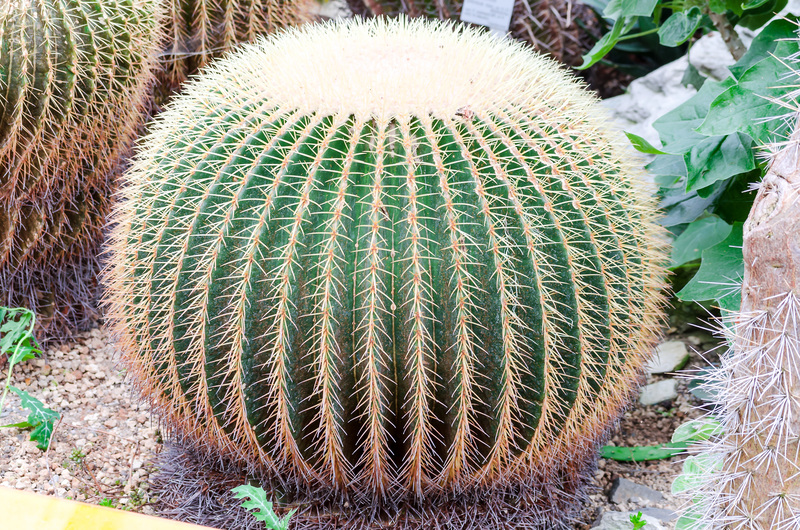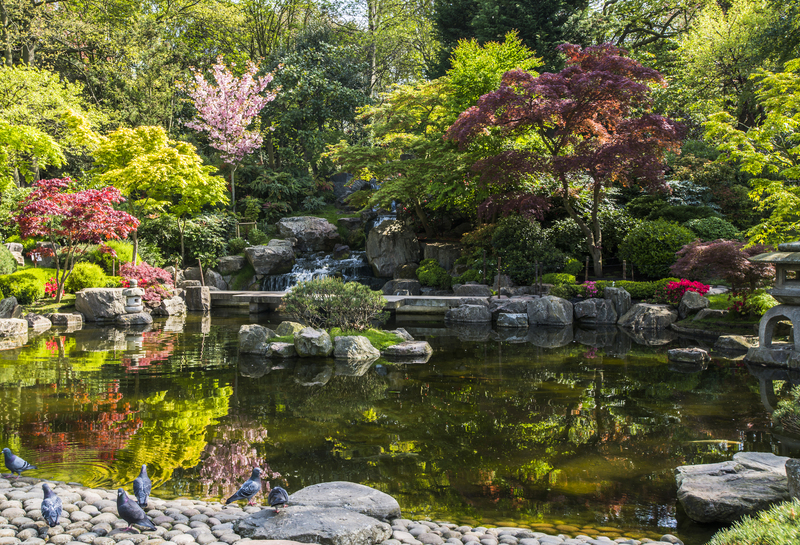Start Your Green Adventure: 9 Essential Gardening Tips for Beginners
Posted on 18/09/2025
Start Your Green Adventure: 9 Essential Gardening Tips for Beginners
Are you dreaming of turning your backyard or even windowsill into a green oasis? Whether you're seeking a hobby, aiming to grow your own food, or just want to beautify your space, beginning gardening can be an incredibly rewarding journey. In this comprehensive guide, we'll share nine essential tips for novice gardeners to help you cultivate your green thumb and set the stage for a thriving garden. Read on and let this be the start of your green adventure!
1. Choose the Right Location
Location is key! The first step in starting your garden is selecting the optimal spot. Plants need sunlight, so observe your home or yard throughout the day. Most vegetables, herbs, and many flowers thrive with at least 6-8 hours of direct sunlight daily.
- Sunlight Matters: Identify areas that get morning sun (gentler and less scorching than afternoon sun), particularly if you live in a hot climate.
- Accessibility: Pick a spot that's convenient to visit often. Out of sight means out of mind!
- Protection: Try to find a location shielded from strong winds, which can dry out plants and damage delicate stems.
Remember, even if you only have a balcony or a sunny window to work with, container gardening is a fantastic option for beginners.

2. Understand Your Soil
The secret to gardening success lies beneath your feet. Soil is more than just dirt--it's a living, breathing ecosystem crucial to plant health. Invest some time understanding your soil's texture and composition.
- Soil Test: Purchase a simple soil test kit from a garden center or online. This helps you evaluate pH and nutrient levels.
- Drainage Check: Most garden plants dislike soggy roots. Test drainage by digging a hole, filling it with water, and seeing how long it takes to drain.
- Amend as Needed: Consider mixing in organic material like compost, leaf mold, or well-rotted manure to enrich your soil and improve its structure.
Good soil is the foundation of every flourishing garden--don't skip this step!
3. Start Small and Simple
Less is more when you're learning! It's easy to get swept away imagining lush beds and endless rows of veggies, but starting with a manageable garden plot is crucial for beginner gardeners.
- Focus Your Energy: Begin with a few containers or a small raised bed instead of trying to overhaul your whole yard.
- Experiment: Try different plant varieties to see what thrives in your conditions.
- Avoid Overcrowding: Give each plant enough space; overcrowding leads to competition for resources and more disease.
Tip: Many gardening enthusiasts begin with herbs, salad greens, and cherry tomatoes. They're generally easy to grow, high-yielding, and perfect for kitchen use.
4. Pick the Right Plants
Choosing the right plant varieties suited to your region, soil, and light conditions makes a world of difference. Look for the following when starting your gardening journey:
- Select Hardy Plants: Consult local garden centers for starters--plants known to thrive in your area.
- Read Plant Labels: Pay attention to information about water, light, and spacing needs.
- Consider Seasonality: Learn your USDA Plant Hardiness Zone and select plants suited for your climate and growing season.
Pro Tip: Focus on low-maintenance or native plant species to give yourself an easier introduction to the world of gardening.
5. Learn Planting Techniques
How and when you plant seeds or seedlings determines how well they grow. Here are some basic planting tips for beginners:
- Follow Instructions: Each species has its own preferred planting depth and spacing. Check seed packets or nursery labels carefully.
- Timing is Everything: Certain seeds need to be started indoors. Others can be sown directly in the soil. Research the best strategy for each plant.
- Be Gentle: When transplanting, avoid damaging roots. Water immediately after planting to settle the soil around your new addition.
The more mindful your start, the stronger your plants will grow!
6. Master Watering Wisely
Water is vital, but both too little and too much can harm plants. Here's how beginners can water their gardens effectively:
- Check the Soil: Stick a finger an inch into the soil. If it's dry, it's time to water.
- Water at the Base: Aim for the soil, not the leaves, to reduce the risk of disease.
- Timing Matters: The best time to water is early in the morning or late afternoon to minimize evaporation.
- Use Mulch: A layer of shredded leaves, straw, or bark conserves moisture and keeps soil temperature stable.
Remember: Container gardens may need more frequent watering than in-ground beds, especially in summer heat.
7. Feed Your Plants
Plants need more than water and sunlight; they rely on nutrients to flourish. As you start your green adventure, learn the basics of plant nutrition:
- Organic Fertilizers: Use compost, worm castings, or organic pellets to gently feed your garden.
- Frequency Matters: Over-fertilizing can burn roots, especially in young plants. Less is often more for beginners.
- Signs of Trouble: Pale leaves or stunted growth might indicate nutrient deficiencies. Adjust your feeding schedule accordingly.
Feeding your plants properly will ensure vibrant blooms and bountiful harvests.
8. Keep an Eye on Pests and Diseases
Even the most vigilant gardeners deal with pests and disease from time to time. The key is early detection and low-impact solutions:
- Inspect Regularly: Look under leaves and along stems for eggs or chew marks.
- Encourage Beneficial Insects: Ladybugs, lacewings, and bees all help control pests naturally.
- Healthy Plants are Resilient: Stress-free, well-watered plants resist disease better than those struggling.
- Use Natural Remedies: If needed, try neem oil, insecticidal soap, or hand-picking larger pests.
Practicing integrated pest management keeps your green space safe and sustainable.
9. Practice Patience and Keep Learning
Gardening is an ongoing journey, not a one-time project. The most important beginner gardening tip is patience. Plants take time to grow, and every mistake is a new lesson.
- Track Progress: Keep a gardening journal or take photos to record what works and what doesn't.
- Join Communities: Online forums, local gardening clubs, or social media groups are fantastic sources of advice and support.
- Celebrate Small Wins: Every new sprout or bloom is a success--don't compare your beginner garden to others.
Every season brings new inspiration and challenges. Start your green adventure with curiosity and a willingness to learn, and you'll reap the rewards for years to come.
Extra Beginner-Friendly Gardening Ideas
As a bonus for aspiring gardeners, here are a few easy projects to kick off your gardening experience:
- Herb Windowsill Gardens: Basil, parsley, and mint thrive in small pots with good drainage and sunlight.
- Container Salad Gardens: Try lettuce, arugula, or spinach in portable containers for quick, tasty salads.
- Pollinator-Friendly Flower Beds: Sunflowers, zinnias, and cosmos attract bees and butterflies while brightening your yard.
- Vertical Gardens: Use trellises, wall planters, or hanging baskets to maximize space.
Let creativity guide your first gardening projects--there are no strict rules, only inspiration!

Frequently Asked Questions for Beginner Gardeners
What are the easiest plants for beginners?
For a simple start, try growing herbs (basil, chives, parsley), salad greens, radishes, zucchini, and marigolds. These are all forgiving and productive plants for new gardening enthusiasts.
How often should I water my garden?
It depends on the weather, soil type, and plant species, but most gardens require deep watering 1-2 times per week. Container gardens and seedlings may need it more frequently. Always check the soil first--watering needs can change quickly!
Do I need to use fertilizers?
Using a balanced organic fertilizer or compost can support plant health, especially if your soil is lacking nutrients. However, avoid over-fertilizing--start slow, observe your plants, and adjust as needed.
When should I start my garden?
The best time depends on your climate. In most places, spring and early summer are perfect for sowing most vegetables and flowers outdoors. Use local planting calendars or ask your local nursery for guidance.
Conclusion: Embark on Your Gardening Journey
Starting your green adventure doesn't require a perfect backyard or a huge budget--just a bit of space, some patience, and a willingness to learn. By following these 9 beginner gardening tips, you'll develop a deeper connection to nature, enjoy fresh, homegrown produce, and create a peaceful sanctuary right at home.
Remember: Every gardener began as a beginner. Celebrate your efforts, and don't hesitate to ask questions along the way. Grow at your own pace, and let your curiosity lead you forward. Soon enough, you'll be sharing your own gardening secrets with friends and family!
Ready to get started? With these essential tips under your belt, your green adventure awaits. Happy gardening!
```Latest Posts
Top Gardening Tools to Elevate Your Outdoor Experience
Kickstart Your Neglected Garden Makeover Journey
Transform Your Space with a Beautiful Herb Garden
Start Your Green Adventure: 9 Essential Gardening Tips for Beginners
Transform Your Yard into Serene Zen Spaces for Ultimate Relaxation and Calm

